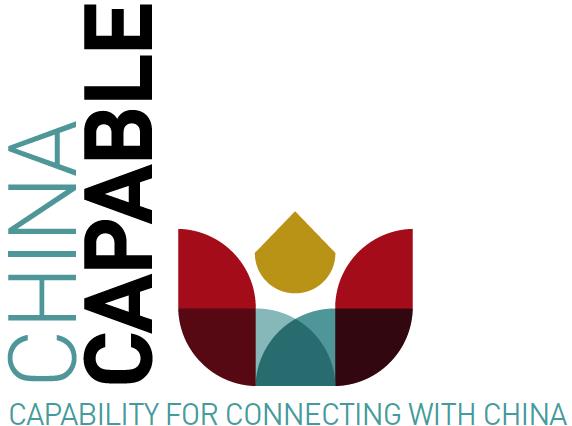Find the latest news for China
On this page
Embassies and consular services for China
| Location | Service areas |
|---|---|
| Embassy of the People's Republic of China | |
| New Zealand Embassy to China | China, Mongolia |
Our relationship with China
New Zealand and China have a long relationship going back to the 1840s. The first Chinese immigrant to New Zealand is thought to have been Appo Hocton, who arrived in Nelson in 1842. The first significant arrival of Chinese migrants to New Zealand was in the 1860s, driven largely by the Otago gold rush. New Zealand and China established formal diplomatic relations in December 1972.
With extensive bilateral, trade, and cultural connections, New Zealand’s relationship with China is one of our most complex and significant, impacting a wide range of sectors and groups across New Zealand.
Read about first steps towards diplomatic ties between New Zealand and China.
Read about our Embassy in Beijing.
Trade and investment
China is an important economic partner for New Zealand, offering opportunities for trade, investment, and cooperation that benefits both sides. We value a productive, stable, and complementary trading relationship with China. China has been New Zealand’s largest trading partner(external link) since 2017.
The 2008 New Zealand-China Free Trade Agreement (FTA) cements the trading relationship between New Zealand and China, and frees up business for exporters, the service sector and investors. By 2016, New Zealand had duty free access on over 97% of China’s tariff lines.
Since 1 January 2022, most New Zealand dairy products to China have been entitled to duty-free access as a result of the ongoing implementation of our 2008 FTA with China. All remaining tariffs on New Zealand dairy products were lifted in 2024.
On 7 April 2022, the New Zealand-China FTA upgrade came into force. Building on our 2008 FTA, the Upgrade updated rules underpinning our bilateral trade, additional market access commitments in goods and services, and additional trade facilitation measures. In June 2024, New Zealand and China officially launched Trade in Services Negotiations based on a Negative List Approach under the New Zealand-China FTA. The negotiations will focus on updating the rules for trade in services between the two countries.
China and New Zealand are also both parties to the Regional Comprehensive Economic Partnership (RCEP), which entered into force on 1 January 2022.
As in the wider relationship, formal diplomatic engagement continues to provide a valuable structure for advancing our trade and economic interests.
For more information, please see our China Market updates(external link), and find the latest information about New Zealand’s trade profile with China on the New Zealand Trade Dashboard(external link).
People and culture
People-to-people links form another key strand of the New Zealand-China relationship. New Zealand and China continue to enjoy extensive people exchanges, especially in education and tourism. Chinese students constitute New Zealand’s largest source of foreign students – a far cry from what began as an exchange programme of three students from each country.
China continues to be an important tourism market for New Zealand. Pre-COVID-19, Chinese tourists accounted for our second largest source of tourists, today it is our third largest source.
New Zealand and China have significant mutual research interests, particularly in food, environmental and health sciences. More information is available on MBIE’s website: International science partnerships | Ministry of Business, Innovation & Employment(external link).
New Zealand and China also have a long-standing commitment to bilateral cooperation on environment and climate change issues. New Zealand and China signed an Environmental Cooperation Agreement [PDF, 206 KB] (ECA) in 2008 which acts as the main framework for bilateral environment cooperation with China. The NZ-China FTA upgrade also included a new chapter on environment and trade.
Our bilateral cooperation on climate change is underpinned by the Climate Change Cooperation Arrangement [PDF, 197 KB] signed in 2014, and the New Zealand-China Climate Change Action Plan 2017 [PDF, 67 KB] which gives practical effect to the 2014 agreement. The 2019 New Zealand-China Leaders’ statement on Climate Change re-affirmed our commitment to strengthening our bilateral engagement on climate change. Our Ministers meet annually to discuss a range of issues through a Ministerial Climate Change Dialogue
New Zealand also has a strong history of protecting and promoting human rights both at home and internationally. We regularly discuss human rights issues with the Chinese Government and raise concerns both privately and publicly.
Entering China
The latest information on specific entry requirements, including pre-departure requirements and visa application processes, can be found on the Chinese Embassy website(external link).
China Capable Public Sector programme

The China Capable Public Sector (CCPS) programme is a whole-of-government initiative to develop a China capable public sector with awareness, knowledge, experience, and leadership to engage effectively with China, both internationally and domestically.
The programme is led by the Ministry of Foreign Affairs and Trade (MFAT) in partnership with agency leaders across the public sector. This investment is being made by agencies given the significance of New Zealand’s relationship with China, the opportunities this presents and the challenges that need to be managed.
The CCPS works with the New Zealand Contemporary China Research Centre to deliver products, drawing from expertise across the public sector, business, academia, media and the Chinese diaspora community.
For further information and contact details, please refer to the CCPS website(external link)
Follow us
Weibo | New Zealand embassy in Beijing(external link)
X | @nzinguangzhou | New Zealand consulate-general in Guangzhou(external link)
X | @NZinShanghai | New Zealand consulate-general in Shanghai(external link)

